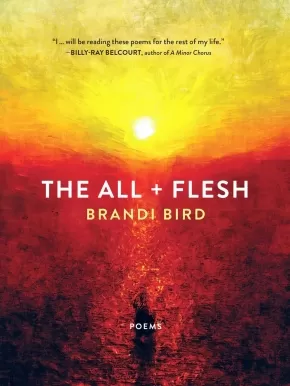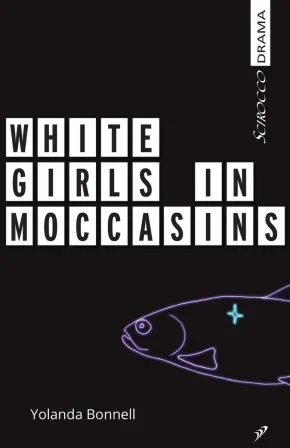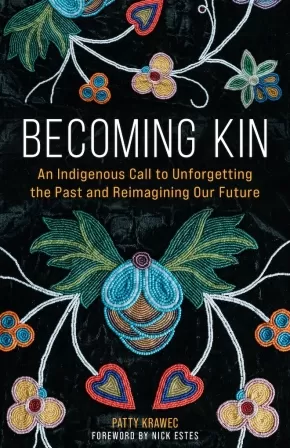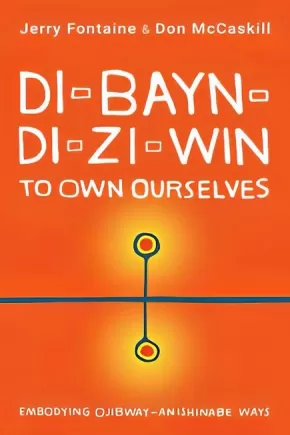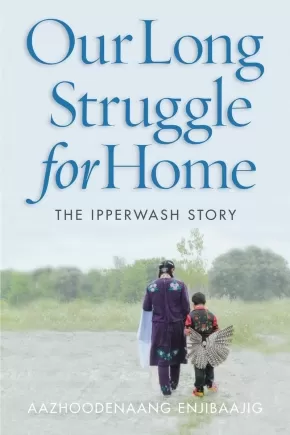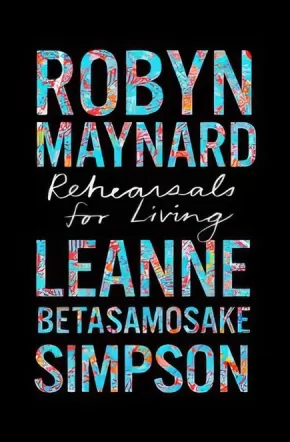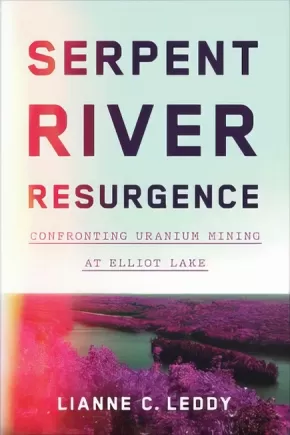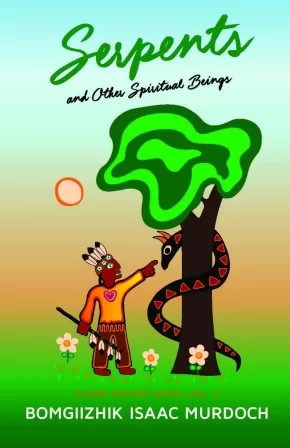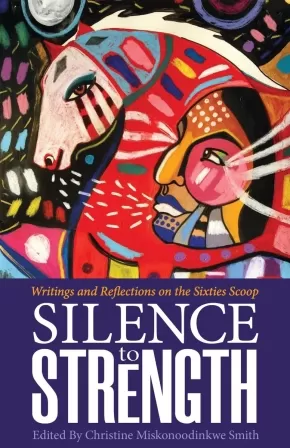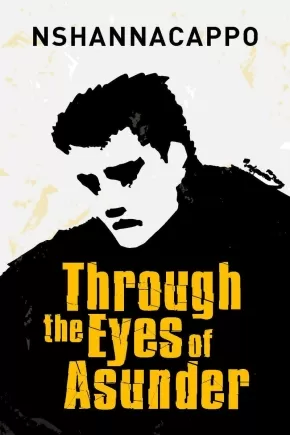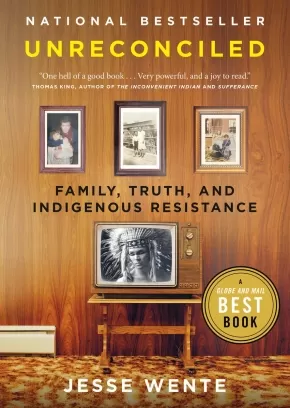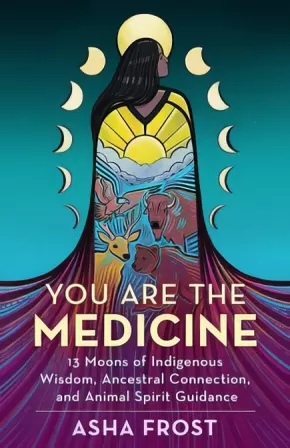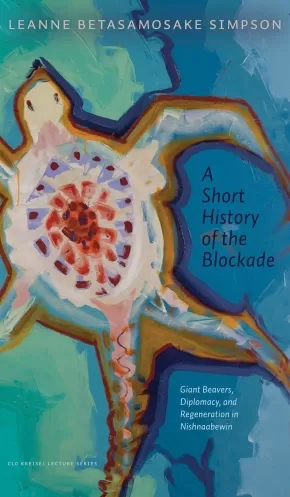
Ojibway (Ojibwe)
46
-
60
of
128 Results;
Sort By
Go To
of 9
The All + Flesh: Poems
$19.99
Format:
Paperback
Text Content Territories:
Indigenous Canadian; First Nations; Anishinaabeg; Ojibway; Saulteaux; Cree (Nehiyawak); Métis;
Reading Level: N/A
ISBN / Barcode: 9781487011826
Synopsis:
Synopsis:
Brandi Bird's frank, transcendent poetry explores the concepts of health, language, place, and memory in this long-anticipated debut collection.
Brandi Bird's long-anticipated debut poetry collection, The All + Flesh, explores the concepts of health, language, place, and memory that connect its author to their chosen kin, blood relatives, and ancestral lands. By examining kinship in broader contexts, these frank, transcendent poems expose binaries that exist inside those relationships, then inspect and tease them apart in the hope of moving toward decolonial future(s). Bird's work is highly concerned with how outer and inner landscapes move and change within the confines of the English language, particularly the "I" of the self, a tradition of movement that has been lost for many who don't speak their Indigenous languages or live on their homelands. By exploring the landscapes the poet does inhabit, both internally and externally, Bird's poems seek to delve into and reflect their cultural lineages-specifically Saulteaux, Cree, and Métis-and how these transformative identities shape the person they are today.
I am made of centuries & carbohydrates
the development of my molars
the hunger the teeth grew
has been with me since childhood
I can't escape the mouths of others
Awards
- 2024 Poetry in English, Indigenous Voices Awards
Reviews
"Since hearing Brandi Bird at a reading in a park in summertime recite the lines, "I know / then that there is hope / until I die & then / there is other / people's hope," I have thought about them many times, they have merged with my own consciousness. That's the power of Bird's poems-they resonate at such a visceral and cerebral level that they become a part of you. The All + Flesh marks the arrival of an endlessly moving and astounding voice in Indigenous poetry. I, for one, will be reading these poems for the rest of my life." — Billy-Ray Belcourt, author of A MINOR CHORUS
"In The All + Flesh, Brandi Bird maps the psychic space between 'NDN compartmentalization' and split prairies, from bus depots to 'endocrine storms,' from LiveJournal to a living history of relocation under land theft. 'My body is not an empire but first contact happened at / birth' and 'I eat / until my mouth needles / the dark.' With exacting lucidity, Bird's lyrics chart the body as a reservoir for colonial malice, a site of resistance, and a conduit for a voice that is visceral, immediate, and uncompromising. An absolute triumph of a debut."— Liz Howard, author of Letters in a Bruised Cosmos
"A stunning collection with carefully crafted, searing poems that refuse artifice, indirectness, and voyeurism. Brandi Bird writes the experience of illness and Indigeneity into a world that accepts illness only if it perpetuates colonial beauty and body standards, then interrogates the racist systems that disallow care and compassion for Indigenous people. These poems are tender and surprising; they are holes travelling through time and space. They are able to shapeshift God into pills, prayers, seeds, and stars. The All + Flesh has taken root in my mind and I'm happy to let it grow there." — Jessica Johns, author of Bad Cree
Additional Information
96 pages | 6.00" x 8.00" | Paperback
The Sacred Medicine Oracle: A 56-Card Deck and Guidebook
$35.99
Artists:
Text Content Territories:
Indigenous Canadian; First Nations; Anishinaabeg;
Reading Level: N/A
ISBN / Barcode: 9781401966782
Synopsis:
Synopsis:
Connect with healing traditions, stories, ancestral wisdom, and animal guidance through this 56-card deck and guidebook from Indigenous Medicine Woman and author of You Are the Medicine, Asha Frost.
Indigenous people know the power of earth and spirit medicine. Everything in our natural world is interconnected and sacred. The plants, animals, rocks, waters, stars, moon are our relations, our kin. Every aspect of creation has a spirit. This spirit lives in all things and informs us how to walk in a good way or, in Anishinaabemowin, Mino-bimaadiziwin.
The Sacred Medicine Oracle was birthed to invite readers into a conscious and respectful relationship with medicine teachings, awakening a daily connection to your own inner divinity, power, and wisdom. From the powerful remembering of "Past Life Medicine" to the promise of miracles with "Jingle Dress," each of the 56 cards depicts ceremony, traditions, moon phases, animal guides, and plant allies, all of them alive with energy and blessed with healing intentions from the ancestors.
Additional Information
144 pages | 4.88" x 5.38" | 56 Cards and Guidebook
White Girls in Moccasins
$15.95
Format:
Paperback
Text Content Territories:
Indigenous Canadian; First Nations; Anishinaabeg; Ojibway;
Reading Level: N/A
ISBN / Barcode: 9781990738241
Synopsis:
Synopsis:
Miskozi is searching for something...There's something missing. And she's not sure what it is. She goes on a search for herself and her culture, accompanied by her inner white girl, Waabishkizi, and guided by Ziibi, a manifestation of an ancestral river, both provoking her to try and find the answers. She begins the journey back before she was even born, right at the seeds of colonization when her ancestors were forced to hide their culture anywhere they could. Burying their language.Their teachings.Their bundles.Their moccasins. White Girls in Moccasins is a hilarious and poignant reclamation story that world-hops between dreams, memories, and a surreal game show. Miskozi recounts her life and is forced to grapple with her own truth, while existing in a society steeped in white supremacy. A love letter to brown kids born in the 80s, surviving in the 90s and all those continuing to deeply reclaim.
Additional Information
72 pages | 5.50" x 8.50" | Paperback
Becoming Kin: An Indigenous Call to Unforgetting the Past and Reimagining Our Future (HC) (4 in Stock)
$36.49
Format:
Hardcover
Text Content Territories:
Indigenous Canadian; First Nations; Anishinaabeg; Ojibway; Lac Seul;
Reading Level: N/A
ISBN / Barcode: 9781506478258
Synopsis:
Synopsis:
We find our way forward by going back.
The invented history of the Western world is crumbling fast, Anishinaabe writer Patty Krawec says, but we can still honor the bonds between us. Settlers dominated and divided, but Indigenous peoples won't just send them all "home."
Weaving her own story with the story of her ancestors and with the broader themes of creation, replacement, and disappearance, Krawec helps readers see settler colonialism through the eyes of an Indigenous writer. Settler colonialism tried to force us into one particular way of living, but the old ways of kinship can help us imagine a different future. Krawec asks, What would it look like to remember that we are all related? How might we become better relatives to the land, to one another, and to Indigenous movements for solidarity? Braiding together historical, scientific, and cultural analysis, Indigenous ways of knowing, and the vivid threads of communal memory, Krawec crafts a stunning, forceful call to "unforget" our history.
This remarkable sojourn through Native and settler history, myth, identity, and spirituality helps us retrace our steps and pick up what was lost along the way: chances to honor rather than violate treaties, to see the land as a relative rather than a resource, and to unravel the history we have been taught.
Additional Information
224 pages | 5.81" x 8.53" | Hardcover
Di-bayn-di-zi-win (To Own Ourselves): Embodying Ojibway-Anishinabe Ways
$24.99
Format:
Paperback
Text Content Territories:
Indigenous Canadian; First Nations; Anishinaabeg; Ojibway;
Grade Levels: 12; University/College;
ISBN / Barcode: 9781459748996
Synopsis:
Synopsis:
A collaboration exploring the importance of the Ojibway-Anishinabe worldview, use of ceremony, and language in living a good life, attaining true reconciliation, and resisting the notions of indigenization and colonialization inherent in Western institutions.
Indigenization within the academy and the idea of truth and reconciliation within Canada have been seen as the remedy to correct the relationship between Indigenous Peoples and Canadian society. While honourable, these actions are difficult to achieve given the Western nature of institutions in Canada and the collective memory of its citizens, and the burden of proof has always been the responsibility of Anishinabeg.
Authors Makwa Ogimaa (Jerry Fontaine) and Ka-pi-ta-aht (Don McCaskill) tell their di-bah-ji-mo-wi-nan (Stories of personal experience) to provide insight into the cultural, political, social, and academic events of the past fifty years of Ojibway-Anishinabe resistance in Canada. They suggest that Ojibway-Anishinabe i-zhi-chi-gay-win zhigo kayn-dah-so-win (Ways of doing and knowing) can provide an alternative way of living and thriving in the world. This distinctive worldview — as well as Ojibway-Anishinabe values, language, and ceremonial practices — can provide an alternative to Western political and academic institutions and peel away the layers of colonialism, violence, and injustice, speaking truth and leading to true reconciliation.
Reviews
"Fontaine and McCaskill write in a way our own Indigenous People can understand and feel; their passion is tangible." — Graham Hingangaroa Smith, Distinguished Professor, Massey University - NZ
"There are multiple ways to inhabit our deepest principles. There are also many ways to honor land and our elders by embodying the teachings of both. Here is life found in kindness, loving, and truth. How do we access healing and how do we share this healing with others? Reading this book is one way. Tears of gratitude are for you both, Jerry Fontaine and Don McCaskill. Mahalo nui no ko ?ike nahenahe. Thank you for this mutual emergence shaped as much by friendship as it is by ?ike kupuna - elder knowledge. What is within these pages are ceremonial gifts offered to all who will take the time to connect with what is inevitable about our collective evolution." — Manulani Aluli Meyer, University of Hawai‘i
Additional Information
328 pages | 6.00" x 9.00" | Paperback
Our Long Struggle for Home: The Ipperwash Story
$24.95
Format:
Paperback
Text Content Territories:
Indigenous Canadian; First Nations; Anishinaabeg; Ojibway; Chippewas of Kettle and Stony Point First Nation;
Reading Level: N/A
ISBN / Barcode: 9780774890571
Synopsis:
Synopsis:
Most Canadians know only a tiny part of the Ipperwash story – the 1995 police shooting of Dudley George. In Our Long Struggle for Home, George’s sister, cousins, and others from the Stoney Point Reserve tell of broken promises and thwarted hopes in the decades-long battle to reclaim their ancestral homeland, Aazhoodena, both before and after the police action culminating in George’s death.
Offering insights into Nishnaabeg lifeways and historical treaties, this compelling account conveys how government decisions have affected lives, livelihoods, and identity. We hear of the devastation wrought by forcible eviction when the government re-purposed Nishnaabeg ancestral territory as an army training camp in 1942, promising to return it after the war. By May 1993, the elders had waited long enough. They entered the still-functioning training camp, under cover of a picnic outing, and constituted themselves as the interim government of the reclaimed Stoney Point Reserve. The next two years brought cultural and social revival, though it was ultimately quashed as an illegal occupation.
Our Long Struggle for Home also shows what can be accomplished through perseverance and undiminished belief in a better future. This is a necessary lesson on colonialism, the power of resistance, persistence, and the possibilities inherent in recognizing treaty rights.
This is an important read for anyone who seeks a better understanding of the continuing influence of Canada’s colonial history and the injustices that Indigenous people have faced, and is a story that will inspire the Indigenous youth of today. It belongs in schools, public libraries, and reserves.
Reviews
"Our Long Struggle for Home is a beautiful articulation of Nishnaabeg world building and the deep relationality that is our practice to make and remake home. The Azhoodenaang Enjibaajig have gifted us the stories of their struggle to live as Nishnaabeg in their homeland and teach us how to live together in a way that brings forth more life." — Leanne Betasamosake Simpson, author of Noopiming: The Cure for White Ladies
"This is an incredible story about resistance and truth. Our Long Struggle for Home is critically important to the discussion about healing and reconciliation because it brings some clarity to what is taking place in Canada. It is brilliant in its simplicity." — Jerry Fontaine, former chief of the Sagkeeng First Nation
"This excellent book captures the honesty, dignity, and resilience of the Nishinaabe people involved in reclaiming their homeland at Stoney Point. It’s the first time the Ipperwash story has been told from their perspective; it’s a substantial contribution." — Justice Sidney B. Linden, commissioner for the Ipperwash Inquiry
"Our Long Struggle for Home is an excellent book of public education. It illustrates the havoc wreaked on Indigenous communities and complex outcomes of systemic poverty, frustration, and injustice. Through beautiful, and at times devastating, stories, it also offers powerful examples of healing, nourishment, and restoration." — Nicole Latulippe, assistant professor, Geography and Environmental Studies, University of Toronto Scarborough
Educator Information
Table of Contents
Foreword / John Borrows
Maps
Genealogy
Introduction
1 No Word for Surrender
2 “The House Was Gone”
3 Disruption and Determination
4 Under Cover of Prayer Meetings
5 Burying the Hatchet under a Peace Tree
6 Peacekeepers and Nation Builders
7 Taking the Barracks
8 September 5–6, 1995, Project Maple
9 September 5–6, 1995, from Our Point of View
10 After the Shooting
Epilogue: Two Boats Travelling Side by Side
Afterword: Learning to Be Treaty Kin / Heather Menzies
Notes; Index
Additional Information
208 pages | 6.00" x 9.00" | 2 maps, 1 genealogy chart | Paperback
Rehearsals for Living (HC) (1 in Stock)
$32.00
Format:
Hardcover
Text Content Territories:
Indigenous Canadian; First Nations; Anishinaabeg; Mississauga; Alderville First Nation;
Reading Level: N/A
ISBN / Barcode: 9781039000650
Synopsis:
Synopsis:
A revolutionary collaboration about the world we're living in now, between two of our most important contemporary thinkers, writers and activists.
When the world entered pandemic lockdown in spring 2020, Robyn Maynard, influential author of Policing Black Lives, and Leanne Betasamosake Simpson, renowned artist, musician, and author of Noopiming: The Cure for White Ladies, began writing each other letters—a gesture sparked by a desire for kinship and connection in a world shattering under the intersecting crises of pandemic, police killings, and climate catastrophe. These letters soon grew into a powerful exchange about where we go from here.
Rehearsals for Living is a captivating and visionary work—part debate, part dialogue, part lively and detailed familial correspondence between two razor-sharp writers. By articulating to each other Black and Indigenous perspectives on our unprecedented here and now, and reiterating the long-disavowed histories of slavery and colonization that have brought us to this moment, Maynard and Simpson create something new: an urgent demand for a different way forward, and a poetic call to dream up other ways of ordering earthly life.
Reviews
“This book must be read for its future vocabularies, its political intimacies, its careful assemblage of the materials of our activisms, and its generous and fulsome thinking.”—Dionne Brand, poet, novelist, and essayist
“Using the age-old practice of letter writing and the land itself as a palimpsest, Robyn Maynard and Leanne Betasamosake Simpson find common ground to challenge the moral legitimacy of the settler nation state, and reinscribe new ways of what it means to be beings who are human in the forensic landscapes of Canada. In Rehearsals for Living, two women, one Indigenous, the other Black and African-descended confront their shared yet different experiences of colonialism, provide new and subversive meanings to the colonial trope of being landed, the mechanism by which the land was (un)settled. Unflinchingly, and in long-overdue and profoundly-needed “reasonings” that reverberate with shared breath, Simpson and Maynard weave their ideas, thoughts and reflections and their deep caring for community and society through the network of issues that impact us today—the pandemic and the differentials in treatment for Black and Indigenous people, the role of BLM, abolition, the necessity of Nibi and homespace for the Nishnaabeg, the joys of living on the land, and parenting in the face of ecological and racial disasters are but a few of the challenges they grapple with. Rehearsals for Living is fundamental to understanding the interlocking, founding crimes of the Americas; necessary for remembering the many erased histories of the on-going struggle for justice, and altogether indispensable to those wanting to create possible solutions.”—M. NourbeSe Philip, author of Zong!
Additional Information
336 pages | 5.46" x 8.32" | Hardcover
Serpent River Resurgence: Confronting Uranium Mining at Elliot Lake
$29.95
Format:
Paperback
Text Content Territories:
Indigenous Canadian; First Nations; Anishinaabeg; Ojibway; Serpent River First Nation;
Reading Level: N/A
ISBN / Barcode: 9781442614376
Synopsis:
Synopsis:
Serpent River Resurgence tells the story of how the Serpent River Anishinaabek confronted the persistent forces of settler colonialism and the effects of uranium mining at Elliot Lake, Ontario. Drawing on extensive archival sources, oral histories, and newspaper articles, Lianne C. Leddy examines the environmental and political power relationships that affected her homeland in the Cold War period.
Focusing on Indigenous-settler relations, the environmental and health consequences of the uranium industry, and the importance of traditional uses of land and what happens when they are compromised, Serpent River Resurgence explores how settler colonialism and Anishinaabe resistance remained potent forces in Indigenous communities throughout the second half of the twentieth century.
Reviews
"Lianne C. Leddy’s book Serpent River Resurgence is a welcome addition to the conversation on mining and development in and around the Elliot Lake area. This is a must-read for any person wanting to engage in reconciliation and to understand that First Nations people have been on the frontlines of resource development and have suffered the consequences. This is a timely message for all in the era of reconciliation, and a reminder that First Nations communities have not always been properly consulted or made aware of the consequences, and have been at the whim of the Federal government. We must be reminded of our past relationships, and how we got to this point, and we need to hear the truth. This book brings to light some of the truths; it is a welcome addition to the conversation on reconciliation."— Chief Brent (Nodini’inini) Bissaillion, Chief of the Serpent River First Nation
"For anyone seeking to understand twentieth-century colonialism in Canada, this book offers a compelling on-the-ground story of resource extraction in Anishinaabek homelands. Lianne C. Leddy has done a superb job of tying together uranium demands for American weapons of war, mining boomtown development, and the rich history and culture of the Serpent River people. It is an antidote to settler narratives of progress and a vision of resilient people, land, and future."— Kim Anderson, Canada Research Chair in Indigenous Relationships and Associate Professor of Family Relations and Applied Nutrition, University of Guelph
"Serpent River Resurgence is a powerful community-based history of resilience and reclamation. Filling a critical gap in Indigenous history, Lianne C. Leddy demonstrates the impact of the global dynamics of settler colonialism during the Cold War while centring an impressive story of Indigenous resurgence."— Allan Downey, Nak'azdli Whut’en First Nation and Associate Professor of History and Indigenous Studies, McMaster University
"Of bicultural parentage, Leddy situates herself within this story as a member of both sides – Anishinaabe and Canadian. As an Indigenous environmental historian, Leddy explicates the enduring structures of settler colonialism, demonstrating that they are still in force today. To identify those structures, she adroitly deploys the words of her elders, countering their historic exclusion by inserting storytelling into her analysis, while critically approaching and analyzing bureaucratic reports and newspaper articles. A welcome and timely piece of scholarship."— Alan Ojiig Corbiere, Bne Doodem, Canada Research Chair, Indigenous History of North America, York University
"A brilliant analysis of uranium mining in Ontario which centres the lived experiences of Indigenous communities, particularly the Serpent River First Nation. Leddy explores deep-rooted Anishinaabe connections to a particular place, situating these conflicts within global processes of Cold War colonialism. Leddy argues that stories have been the foundation of Indigenous resurgence, and the stories she tells are compelling indeed."— Nancy Langston, Distinguished Professor of Environmental History, Michigan Technological University
Educator Information
Subjects: History / History of Science & Technology; History / Indigenous History; Indigenous Studies / Indigenous History; History / Canadian History; Environmental Studies
Table of Contents
Introduction
1. The Serpent River Anishinaabek before 1950
2. Carving a “Jewel in the Wilderness”: The Establishment of Elliot Lake
3. “It took all the trees”: The Cutler Acid Plant and Its Toxic Legacy
4. “We weren’t supposed to use that water at all!”: Uranium Mining and the
Serpent River
5. “Oooh yes, we all went up to Elliot to protest”: Resilience and Resistance at
Serpent River First Nation
Conclusion
Notes
Bibliography
Additional Information
248 pages | 6.00" x 9.00" | Paperback
Serpents and Other Spiritual Beings
$25.00
Format:
Paperback
Text Content Territories:
Indigenous Canadian; First Nations; Anishinaabeg; Ojibway;
Reading Level: N/A
ISBN / Barcode: 9781928120353
Synopsis:
Synopsis:
Serpents and Other Spiritual Beings is the second book in a series by renowned Ojibwe storyteller Bomgiizhik Isaac Murdoch, following on The Trail of Nenaboozhoo and Other Creation Stories (2019). Serpents and Other Spiritual Beings is a collection of traditional Ojibwe/Anishinaabe stories transliterated directly from Murdoch's oral storytelling. Part history, legend, and mythology, these are stories of tradition, magic and transformation, morality and object lessons, involving powerful spirit-beings in serpent form. The stories appear in both English and Anishinaabemowin, with translations by Patricia BigGeorge. Murdoch's traditional-style Ojibwe artwork provides beautiful illustrations throughout.
Reviews
"'When the Thunderbirds and Serpents fight, they feed off each other, you know great medicine gets cast across the land. We get our life from that.' So writes storyteller Isaac Murdoch as he shares his Elders' stories about tunnels beneath the earth, rich laws, philosophies, teachings, power from up there, down there, and all around us, until we too hear the thunders as they bring us into the world of wahkotowin, all our relations. How privileged and blessed we are to be able to read the Ahtyokaywina of our people."--Maria Campbell, author of Halfbreed
"Gather around, for here are oral stories transcribed so they retain the flavour of a narrative spoken aloud, and translated into Anishinaabemowin; perfect for language-learners. I love the way these stories infuse the spirit world into an every-day context, these are not dusty old legends, but a living way of seeing the world around us in the here and now."--Nathan Niigan Noodin Adler, author of Ghost Lake
Educator & Series Information
Dual-Language: English and Anishinaabemowin.
Anishinaabemowin translation by Patricia BigGeorge, who is an Anishinaabemowin speaker and translator.
This book is Vol. 2 in the Ojibwe History Series.
Additional Information
100 pages | 5.50" x 8.50" | 20 illustrations | Paperback
Silence to Strength: Writings and Reflections on the 60s Scoop
$18.00
Editors:
Format:
Paperback
Text Content Territories:
Indigenous Canadian;
Grade Levels: 12; University/College;
ISBN / Barcode: 9781928120339
Synopsis:
Synopsis:
From the 1960s through the 1980s the Canadian Children's Aid Society engaged in a large-scale program of removing First Nations children from their families and communities and adopting them out to non-Indigenous families. This systemic abduction of untold thousands of children came to be known as the Sixties Scoop. The lasting disruption from the loss of family and culture is only now starting to be spoken of publicly, as are stories of strength and survivance.
In Silence to Strength: Writings and Reflections on the 60s Scoop, editor Christine Miskonoodinkwe Smith gathers together contributions from twenty Sixties Scoop survivors from across the territories of Canada. This anthology includes poems, stories and personal essays from contributors such as Alice McKay, D.B. McLeod, David Montgomery, Doreen Parenteau, Tylor Pennock, Terry Swan, Lisa Wilder, and many more. Courageous writings and reflections that prove there is strength in telling a story, and power in ending the silence of the past.
Reviews
"This is an excellent collection and I recommend it to all who are interested in learning the truth about Indigenous Peoples by reading what they have written, not what has been written about them by non-Indigenous writers. The striking cover art is by George Littlechild, also a survivor of the Sixties Scoop." - MariJo Moore
Additional Information
140 pages | 5.50" x 8.50" | Paperback
Through the Eyes of Asunder
$17.95
Format:
Paperback
Text Content Territories:
Indigenous Canadian; First Nations; Anishinaabeg; Ojibway; Saulteaux; Rolling River First Nation;
Grade Levels: 12; University/College;
ISBN / Barcode: 9781928120322
Synopsis:
Synopsis:
From epic ventures into mythic and fantastical tales to the everyday trials of getting the laundry done, NShannacappo’s debut poetry collection follows many journeys through darkness to hope, healing and heroism. Pure and hauntingly beautiful turns of phrase sound out in the voices of angels, monsters and demons, mythic characters, and the sometimes wry, sometimes grieving voice of a man once broken in heart, spirit, and mind. Through the Eyes of Asunder begins and ends with hope, and takes the reader through sorrow and sadness to bright moments of happiness and love.
Reviews
“Neal Shannacappo is a spiritual thinker. The poetry and life’s perspectives he shares in this collation remind us of the unconditional love and support one can access through the Creator-given learning ways we as human beings are blessed to be born with. Read his words! Feed them to your heart, digest them spiritually and you will benefit from the medicine intended in every word and stanza.”—Albert Dumont, 2021–2022 Poet Laureate for Ottawa and author of Sitting by the Rapids.
“Reading this book, it felt many times like I had stumbled upon a shoebox filled with letters not sent and journals put away for safekeeping. You feel like you shouldn’t pry, but you just can’t help yourself. It was a wonderful read.”—John Brady McDonald, author of KITOTAM
Additional Information
143 pages | 6.00" x 9.00" | 6 illustrations | Paperback
Unreconciled: Family, Truth, and Indigenous Resistance (PB)
$22.00
Format:
Paperback
Text Content Territories:
Indigenous Canadian; First Nations; Anishinaabeg; Ojibway; Serpent River First Nation;
Reading Level: N/A
ISBN / Barcode: 9780735235755
Synopsis:
Synopsis:
A prominent Indigenous voice uncovers the lies and myths that affect relations between white and Indigenous peoples and the power of narrative to emphasize truth over comfort.
Part memoir and part manifesto, Unreconciled is a stirring call to arms to put truth over the flawed concept of reconciliation and to build a new, respectful relationship between the nation of Canada and Indigenous peoples.
Jesse Wente remembers the exact moment he realized that he was a certain kind of Indian--a stereotypical cartoon Indian. He was playing softball as a child when the opposing team began to war-whoop when he was at bat. It was just one of many incidents that formed Wente's understanding of what it means to be a modern Indigenous person in a society still overwhelmingly colonial in its attitudes and institutions.
As the child of an American father and an Anishinaabe mother, Wente grew up in Toronto with frequent visits to the reserve where his maternal relations lived. By exploring his family's history, including his grandmother's experience in residential school, and citing his own frequent incidents of racial profiling by police who'd stop him on the streets, Wente unpacks the discrepancies between his personal identity and how non-Indigenous people view him.
Wente analyzes and gives voice to the differences between Hollywood portrayals of Indigenous peoples and lived culture. Through the lens of art, pop culture, and personal stories, and with disarming humour, he links his love of baseball and movies to such issues as cultural appropriation, Indigenous representation and identity, and Indigenous narrative sovereignty. Indeed, he argues that storytelling in all its forms is one of Indigenous peoples' best weapons in the fight to reclaim their rightful place.
Wente explores and exposes the lies that Canada tells itself, unravels "the two founding nations" myth, and insists that the notion of "reconciliation" is not a realistic path forward. Peace between First Nations and the state of Canada can't be recovered through reconciliation--because no such relationship ever existed.
Reviews
"Unreconciled is one hell of a good book. Jesse Wente’s narrative moves effortlessly from the personal to the historical to the contemporary. Very powerful, and a joy to read."—Thomas King, author of The Inconvenient Indian and Sufferance
“With Unreconciled, Jesse Wente proves himself to be one of the most influential Anishinaabe thinkers of our time. By telling his own story, Jesse provides Canada with an essential roadmap of how to move forward through the myth of reconciliation towards the possibility of a just country. There is much work to be done but reading Jesse’s words, soaking them in and letting them settle in your mind, will set us all on the right path.”—Tanya Talaga, bestselling author of Seven Fallen Feathers
“Mahsi cho, Jesse Wente, for illuminating the biggest issue facing Canada’s relationship with Indigenous people: Canada fears Indigenous people because Canada is terrified of our power. Each language class, culture camp, graduation ceremony, each Supreme Court Ruling, each Treaty (that wasn't forged), each feast and naming ceremony… is part of the incredible Reclaiming happening right now. Please read this book. It's an infuriating read but a necessary one.”—Richard Van Camp, author of The Lesser Blessed and Moccasin Square Gardens
"With Unreconciled, Jesse Wente proves he's a storyteller through and through—one who is unafraid of telling hard but necessary truths, yes, but also one who knows that vulnerability is the quickest way to the heart. Wente shares so generously with his readers in this book, braiding together his own past with the problems of the present, ultimately offering us a way forward, together."—Alicia Elliott, author of A Mind Spread Out on the Ground
Additional Information
208 pages | 5.10" x 7.98" | Paperback
Voicing Identity: Cultural Appropriation and Indigenous Issues
$38.95
Editors:
Format:
Paperback
Text Content Territories:
Indigenous Canadian;
Grade Levels: 12; University/College;
ISBN / Barcode: 9781487544683
Synopsis:
Synopsis:
Written by leading Indigenous and non-Indigenous scholars, Voicing Identity examines the issue of cultural appropriation in the contexts of researching, writing, and teaching about Indigenous peoples. This book grapples with the questions of who is qualified to engage in these activities and how this can be done appropriately and respectfully.
The authors address these questions from their individual perspectives and experiences, often revealing their personal struggles and their ongoing attempts to resolve them. There is diversity in perspectives and approaches, but also a common goal: to conduct research and teach in respectful ways that enhance understanding of Indigenous histories, cultures, and rights, and promote reconciliation between Indigenous and non-Indigenous peoples.
Bringing together contributors with diverse backgrounds and unique experiences, Voicing Identity will be of interest to students and scholars studying Indigenous issues as well as anyone seeking to engage in the work of making Canada a model for just relations between the original peoples and newcomers.
Reviews
"This book is a beautiful and fearless gift to those willing to be challenged about popular public claims regarding a range of cultural appropriation issues. The editors and contributors have created a rich and contextual resource to generate critical conversations about forms of lateral violence and unproductive silencing, and about our need for ‘deliberate unknowing’ so we have space for real learning, practical institutional change, and inclusivity. This collection invites us to ask how ‘Raven steals the sun,’ making sure ‘we look both ways’ when reconsidering history, and thinking about the ‘we’ and the ‘ours.’"— Val Napoleon, IPC, Cree, Saulteau First Nation, Acting Dean and Professor and Law Foundation Chair of Indigenous Justice and Governance, Faculty of Law, University of Victoria
"A highly stimulating and engaging contribution to a much-debated topic – all the more absorbing because the authors come from a wide range of backgrounds and ground their contributions in their personal experiences. Essential reading for anyone with an interest in the subject."— Brian Slattery, Professor Emeritus, Osgoode Hall Law School, York University
Educator Information
Table of Contents
Introduction
John Borrows and Kent McNeil
1. Su-taxwiye: Keeping My Name Clean
Sarah Morales
2. At the Corner of Hawks and Powell: Settler Colonialism, Indigenous People, and the Conundrum of Double Permanence
Keith Carlson
3. Look at Your "Pantses": The Art of Wearing and Representing Indigenous Culture as Performative Relationship
Aimée Craft
4. Indigenous Legal Traditions, De-sacralization, Re-sacralization, and the Space for Not-Knowing
Hadley Friedland
5. Mino-audjiwaewin: Choosing Respect, Even in Times of Conflict
Lindsay Borrows
6. How Could You Sleep When Beds Are Burning? Cultural Appropriation and the Place of Non-Indigenous Academics
Felix Hoehn
7. Who Should Teach Indigenous Law?
Karen Drake and A. Christian Airhart
8. Reflections on Cultural Appropriation
Michael Asch
9. Turning Away from the State: Cultural Appropriation in the Shadow of the Courts
John Borrows
10. Voice and Indigenous Rights
Robert Hamilton
11. Guided by Voices? Perspective and Pluralism in the Constitutional Order
Joshua Nichols
12. NONU WEL,WEL TI,Á NE TȺ,EȻEȽ: Our Canoe Is Really Tippy
kQwa'st'not and Hannah Askew
13. Sharp as a Knife: Judge Begbie and Reconciliation
Hamar Foster
14. On Getting It Right the First Time: Researching the Constitution Express
Emma Feltes
15. Confronting Dignity Injustices
Sa’ke’j Henderson
Contributors
Additional Information
336 pages | 6.00" x 9.00" | 5 black and white illustrations | Paperback
You Are the Medicine: 13 Moons of Indigenous Wisdom, Ancestral Connection, and Animal Spirit Guidance
$23.99
Format:
Paperback
Text Content Territories:
Indigenous Canadian; First Nations; Anishinaabeg; Ojibway;
Reading Level: N/A
ISBN / Barcode: 9781401963507
Synopsis:
Synopsis:
Indigenous Medicine Woman Asha Frost invites readers to learn the healing medicine of the 13 Ojibway moons and the spirit animals that will guide their wisdom journey.
If you are drawn to Indigenous Medicine ways, you, too, have power and beauty in your own lineage waiting to be discovered.
Follow the path of the 13 Ojibway moons with animal spirits as your guides to unlock powerful teachings that will help you directly experience your own medicine connection to your inherent healing powers. If you feel you don't have access to your roots, ancestors, or spiritual connection and you look outside of yourself for answers, you are forgetting the medicine you need lives within you.
Through storytelling, personal reflections, ceremonies, rituals, and shamanic journeys, readers will learn to apply ancient wisdom and ancestral medicine to their own lives in meaningful ways that are respectful and conscious of the stolen lands, lives, and traditions of Indigenous peoples.
Discover how to:
• Ground and root into your own lineage and your ancestral guides.
• Connect to spirit and your innate healing powers in your own unique way.
• Practice self-care and rest on your journey.
• Return ancestral ways of cleansing and purifying.
• Trust and surrender in order to manifest.
• Remember your dreams and use them in your daily life.
• Release self-doubt, fear, disconnection, and insecurity.
Additional Information
280 pages | 5.50" x 8.50" | Paperback
A Short History of the Blockade: Giant Beavers, Diplomacy, and Regeneration in Nishnaabewin
$12.99
Format:
Paperback
Grade Levels: 12; University/College;
ISBN / Barcode: 9781772125382
Synopsis:
Synopsis:
In A Short History of the Blockade, award-winning writer Leanne Betasamosake Simpson uses Michi Saagiig Nishnaabeg stories, storytelling aesthetics, and practices to explore the generative nature of Indigenous blockades through our relative, the beaver—or in Nishnaabemowin, Amik. Moving through genres, shifting through time, amikwag stories become a lens for the life-giving possibilities of dams and the world-building possibilities of blockades, deepening our understanding of Indigenous resistance, as both a negation and an affirmation. Widely recognized as one of the most compelling Indigenous voices of her generation, Simpson’s work breaks open the intersections between politics, story, and song, bringing audiences into a rich and layered world of sound, light, and sovereign creativity. A Short History of the Blockade reveals how the practice of telling stories is also a culture of listening, “a thinking through together,” and ultimately, like the dam or the blockade, an affirmation of life.
Educator Information
Subjects & Keywords: Social Sciences, Literary Criticism, Indigenous Studies; Indigenous resistance, blockades, beaver dams, Nishnaabeg storytelling, regeneration, generative resistance, Canadian Indigenous literature, land defenders, water defenders, practice of wisdom, Indigenous stories, Indigenous authors.
Recommended in the Canadian Indigenous Books for Schools collection for grades 10 to 12 for these subjects: Social Studies, English Language Arts, English First Peoples
Additional Information
88 pages | 5.25" x 9.00"
Sort By
Go To
of 9

